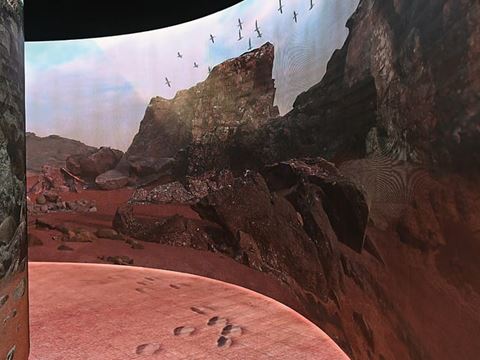
FirstLook: Mobile Library, Java
Ridwan Sururi of Serang Village, central Java, Indonesia, started the Kudapustaka (Horse library), in 2015. Today he visits villages and schools three days a week.
In 2015 Ridwan Sururi of Serang Village, central Java, Indonesia, started the Kudapustaka (Horse library), and since then, three days a week, he has visited villages and schools like Miftahul Huda Islamic Elementary School. On this day he was joined by his two-year-old son, Tria Ramadhan. Together they handed out donated books to the students. As a photographer I did this story because I was also born in a village with difficult access to books. I believe in the power of books, and I know what Mr. Sururi is doing is important.
—Putu Sayoga
www.putusayoga.net
www.arkaproject.com
@putu_sayoga @arkaproject

You may also be interested in...

"Duet": Senegalese Double Portrait
Arts
“Duet” comes from the Latin root word duo which means two. The Duet series focuses on double portraits, a tradition in West Africa..jpg?cx=0.5&cy=0.5&cw=480&ch=360)
Photo Captures Kuwaiti Port Market in the 1990s
History
Arts
After the war in 1991, Kuwait faced a demand for consumer goods. In response, a popular market sprang up, selling merchandise transported by traditional wooden ships. Eager to replace household items that had been looted, people flocked to the new market and found everything from flowerpots, kitchen items and electronics to furniture, dry goods and fresh produce.
Ithra Explores Hijrah in Islam and Prophet Muhammad
History
Arts
Avoiding main roads due to threats to his life, in 622 CE the Prophet Muhammad and his followers escaped north from Makkah to Madinah by riding through the rugged western Arabian Peninsula along path whose precise contours have been traced only recently. Known as the Hijrah, or migration, their eight-day journey became the beginning of the Islamic calendar, and this spring, the exhibition "Hijrah: In the Footsteps of the Prophet," at Ithra in Dhahran, Saudi Arabia, explored the journey itself and its memories-as-story to expand understandings of what the Hijrah has meant both for Muslims and the rest of a the world. "This is a story that addresses universal human themes," says co-curator Idries Trevathan.